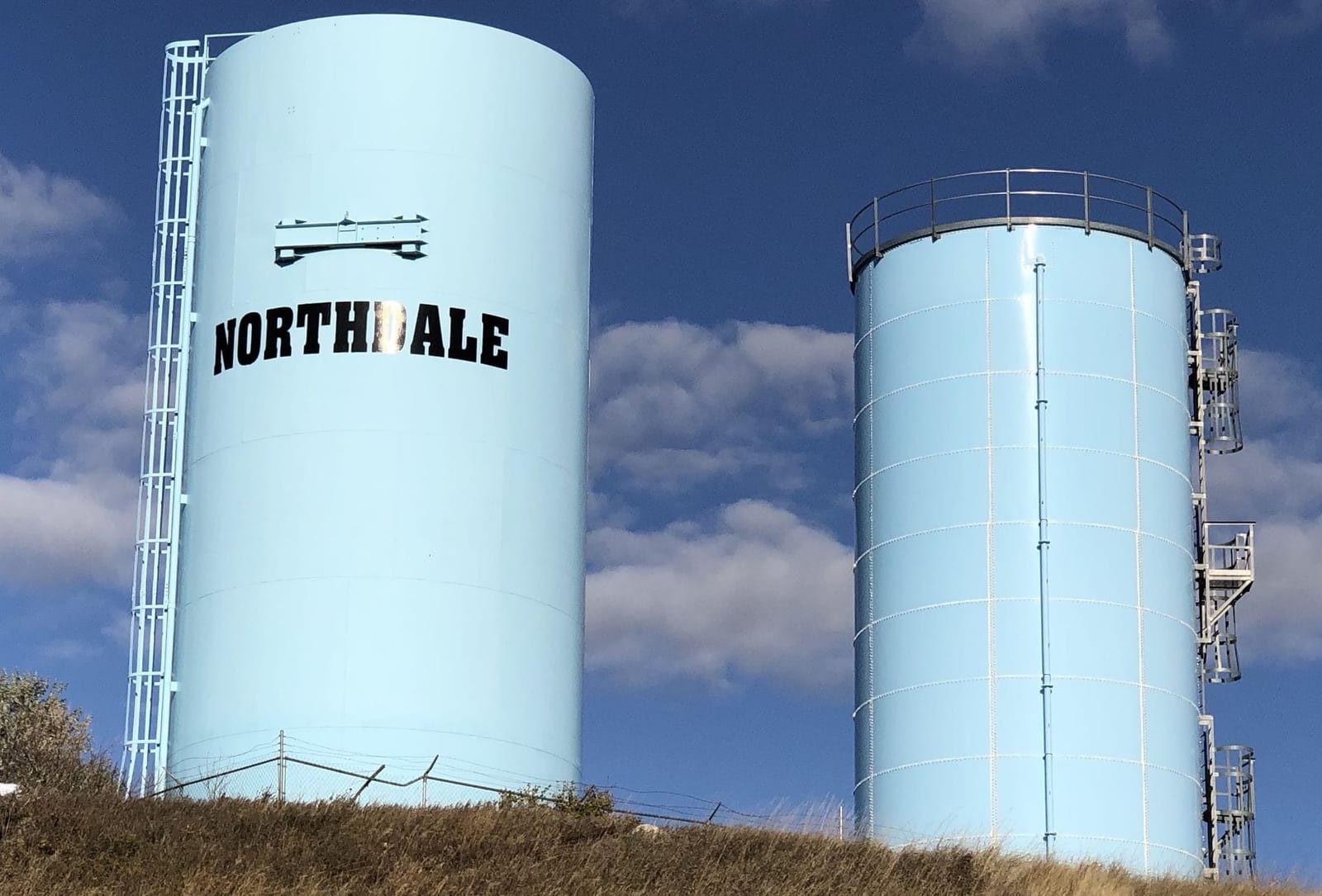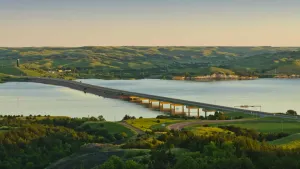A West River lawmaker said he might file a bill in the 2026 legislative session that could slow or even stop some new development across the Black Hills by limiting the ability to take more water from underground aquifers.
Rep. Scott Odenbach, a Republican from Spearfish who is majority leader in the House of Representatives, said he began to think about water conservation in western South Dakota after seeing a U.S. Geological Survey study released in late July.
It indicated that even in non-drought periods, some sections of aquifers that supply fresh water to the Black Hills were not sufficiently recharging through rainwater and runoff.
Odenbach said the study raised concerns that perhaps too much water is being removed from the Madison, Minnelusa and Inyan Kara aquifers and that eventually, a water shortage could result.
The study, as reported by News Watch, found that overall the Black Hills aquifers remain sufficiently filled but that some areas, referred to as "sub-aquifers," are not recharging enough to meet the planned or current actual use of water. The portions of aquifers not sufficiently recharging tended to be in higher-growth areas, roughly from Box Elder on the east to Sturgis on the west.
"We've got to have a conversation ... to ensure that we don't just heedlessly rush into water scarcity here," Odenbach told News Watch. "I think we've always got to make sure that we look out first for residential customers and the people that live here now and then those who want to do other types of uses."
May try to 'tweak' obscure 1978 state law
Odenbach suggested the USGS study could prompt the need to amend SDCL 46-6-6.1, a statute passed in 1978 that prohibits so-called water mining, or the taking of water from aquifers that science shows are not refilling adequately. The law was passed during a period of drought and increased demand for water in southeast South Dakota.
While the law bans removal of water from aquifers above the Greenhorn Formation, which includes those east of the Missouri River, it allows an exception for deeper bedrock aquifers like those beneath the Black Hills.

Odenbach told News Watch he might seek to "tweak" that law in order to remove the Black Hills exception, thereby preventing removal of water from any state aquifer that is not recharging as fast or as much as needed.
"That (statute) essentially says you can't sink new wells into an aquifer, unless you can show that you're not taking out more than is naturally recharged," he said. "In light of that report by the U.S. Geological Survey, I think we need to ask the question of whether we need to make sure that the statute also applies to our aquifers West River."
Odenbach added that he is concerned that some individuals and entities in the Black Hills, such as the development agency Elevate Rapid City, are promoting "growth for the sake of growth" that could negatively affect the existing high quality of life in the Black Hills.
"Groups like Elevate Rapid City, they just want to have untrammeled development as fast as they possibly can. And then when we wake up and it's like Denver and we're out of water, they can move on to somewhere else," Odenbach said. "The people that live here and care about the Black Hills want us to be more careful."
Elevate leader denies characterization
Tom Johnson, CEO of Elevate Rapid City, took umbrage at Odenbach's characterization of his group's efforts to bring new business, jobs and residents to the region. He also said the lawmaker's references to uncontrolled growth as seen in some areas of Colorado are not comparable to what is taking place in the Black Hills.
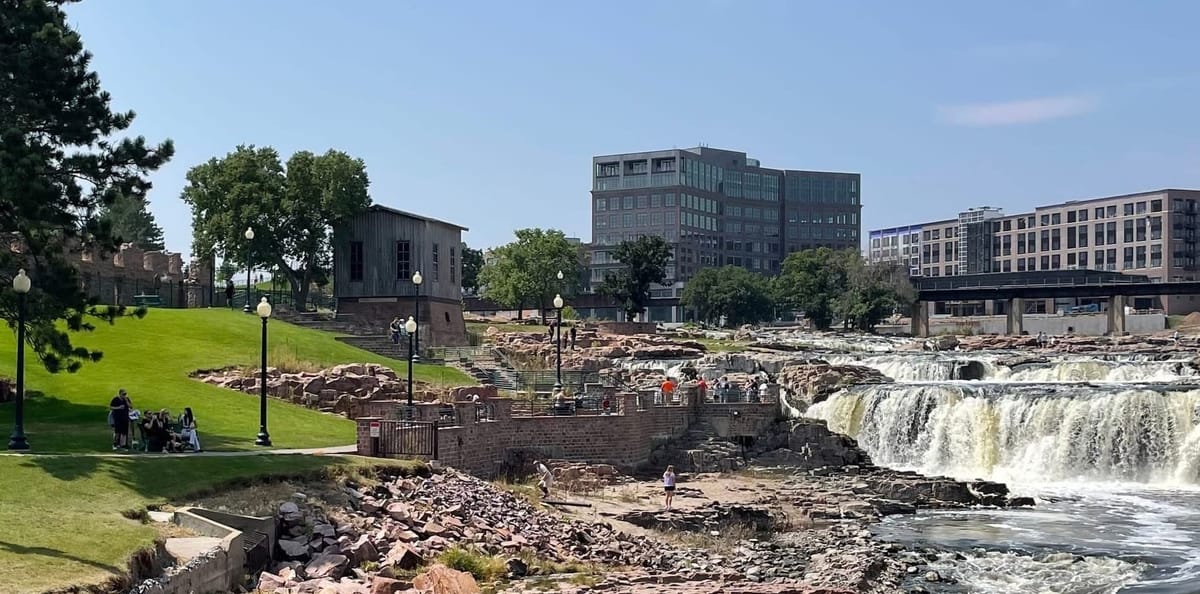
Johnson said Rapid City has seen an average growth rate of 0.3% to 1.7% annually over the past 15 years, which planning experts refer to as a healthy pace of growth.
"We're not Denver and we're not going to become Denver," Johnson said. "We're not growing at some crazy rate."
The USGS report noted that the population of the Black Hills grew about 39% from 2000 to 2022 but surprisingly that "no increased well withdrawal patterns corresponding to population increases were observed." State wells that monitor aquifer levels also have not shown an overall water deficiency, according to the state.
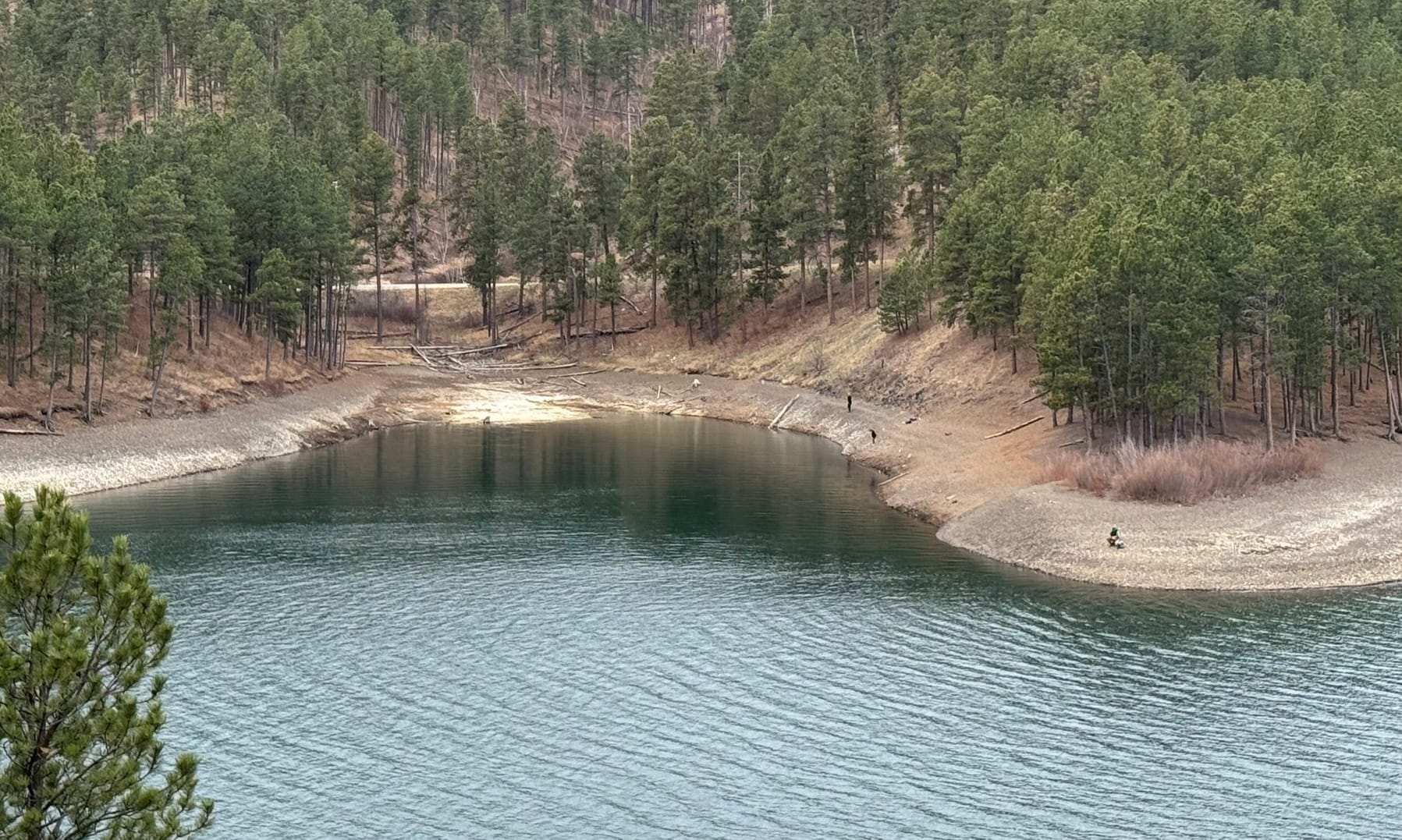
Johnson said enacting legislative barriers to growth could backfire by creating "artificial markets" that interfere with the free market and unwittingly block the arrival of people who aren't already wealthy. That, he said, can drive up the cost of housing and necessary goods and services and make it harder for locals to remain.
"It's easy to pick on a group like Elevate because we try to work toward wealth and prosperity, not unfettered growth," Johnson said. "We try to allow kids to stay here, for the next generation of kids to have jobs."
Johnson said Odenbach is taking an "anti-growth" stance that will prevent the Black Hills and its current and future residents from reaching their highest potential.
"The problem with folks like Odenbach is they've got their piece of the pie, right? They've got the Black Hills that they want and they don't want your kids or your kids' kids to have a piece of that," Johnson said.
"I think the real thing that the voters in Spearfish should do is try to find someone who wants to have a nuanced discussion and vote candidates out that are anti-growth and who want to hand our prosperity over to East River."
Missouri River pipeline project in play
Momentum has been growing behind a $2 billion proposal to build a 161-mile, 6-foot-diameter water pipeline from the Missouri River north of Pierre to locations across western South Dakota, including the Black Hills.
Backers of the project, such as Republican state Sen. Helene Duhamel of Rapid City, have said the pipeline would provide a reliable, long-term source of water for the region.
"We're a thirsty nation and everybody is looking at every water source, so we have to secure clean, reliable water for the future of our state." – state Sen. Helene Duhamel
Duhamel and others saw the USGS report as further evidence of the need for the pipeline.
"I think we really demonstrated we have current water needs, and as legislators, we want to be forward thinking enough to make sure our children and grandchildren have the opportunity to make western South Dakota their home," she said.
In an email to News Watch, Odenbach said he foresees the pipeline as a possible "boondoggle" and is skeptical if it should be built. He also suspects the ultimate cost will exceed $2 billion. Odenbach said he wants to begin conversations to seek alternatives that will preserve access to water but not encourage unfettered growth.
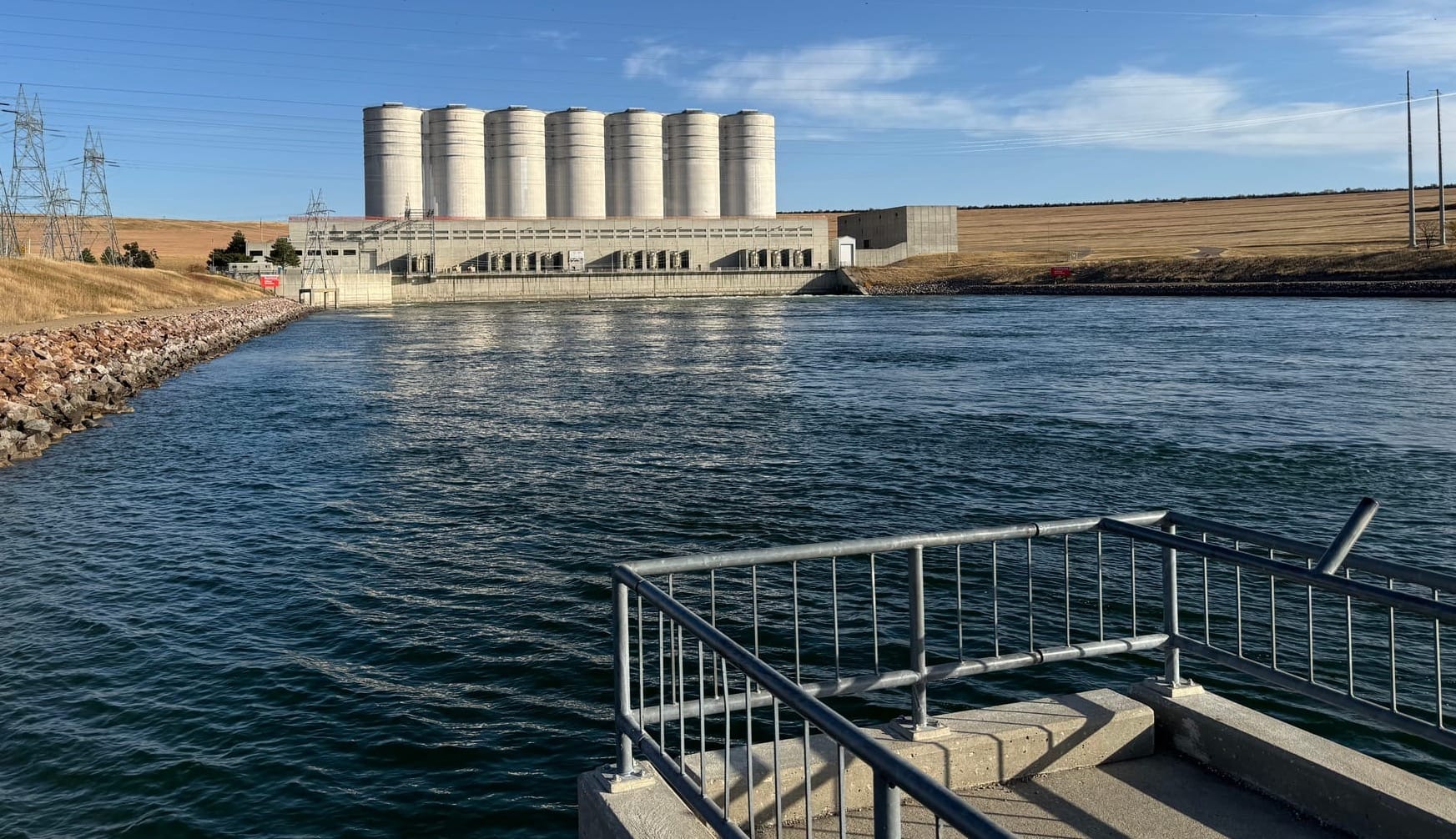
Odenbach said he wants to gather information so the public and policymakers can understand the science behind Black Hills water supplies in order to find possible solutions without relying solely on a proposed pipeline from the Missouri River.
"We're at the fact-gathering stage of this," Odenbach said. "If we are worried that the water is being mined and that we're taking it out faster than we're putting it back, and we're 20 years out from that pipeline possibly being built, then we've got to plan for the next 20 years and be thinking about smart use of these water resources."
Water part of economic development
Duhamel said banning further drilling of wells into western South Dakota aquifers is a "shortsighted" way of addressing rising water needs.
"Planning for our current and future water needs is a critical piece of that puzzle to make this a great place to live and work because a lot of our best and brightest leave the state because they don't have job opportunities," Duhamel said. "To cut off this idea of smart growth is shortsighted because a lot of people need good-paying jobs that don't exist right now."
Read South Dakota News Watch on Apple News
Duhamel also said South Dakota needs to act expediently to build the pipeline before other states on the Missouri River begin to withdraw more water.
"I think we would rue the day and look back and wonder why we didn't make this critical investment as we watch our Missouri River water go to downstream states," she said. "We're a thirsty nation and everybody is looking at every water source, so we have to secure clean, reliable water for the future of our state."
This story was produced by South Dakota News Watch, an independent, nonprofit organization. Read more stories and donate at sdnewswatch.org and sign up for an email to get stories when they're published. Contact Bart Pfankuch at bart.pfankuch@sdnewswatch.org.

